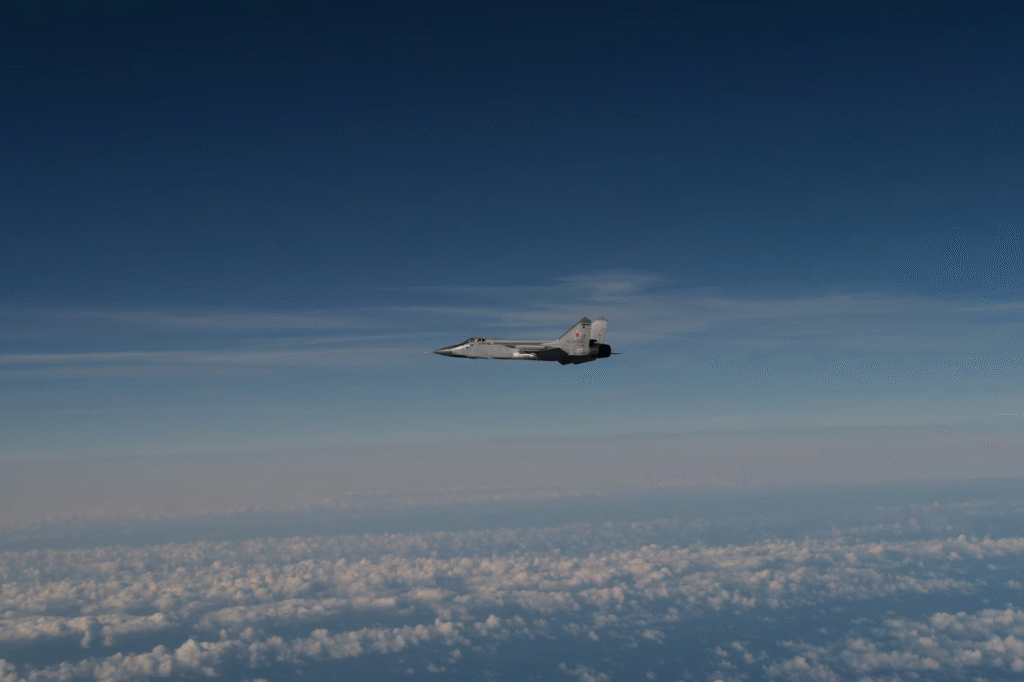
Tallinn, Sept. 20 (Agencies) — Three Russian MiG-31 fighter jets violated NATO member Estonia’s airspace for 12 minutes on Friday, in what Estonian officials described as an “unprecedentedly brazen” incursion.
The incident comes amid heightened regional tensions due to the ongoing war in Ukraine and follows recent Russian drone incursions into Polish airspace.
Estonia’s Foreign Minister Margus Tsahkna condemned the act, saying, “Russia has violated Estonian airspace four times already this year, which is unacceptable in itself, but today’s violation … is unprecedentedly brazen.” Tallinn has summoned Russia’s top diplomat to lodge a protest and deliver a formal note.
The Estonian government said the aircraft entered about 5 nautical miles (9 km) into its airspace near Vaindloo Island without flight plans, with transponders switched off, and no contact with air traffic control. Italian F-35 jets deployed under NATO’s Baltic Sentry mission intercepted and forced the aircraft to leave.
Russia’s Defence Ministry denied the violation, insisting its jets flew strictly over neutral waters en route from mainland Russia to Kaliningrad.
Meanwhile, NATO described the incident as reckless. A spokesperson said, “This is yet another example of reckless Russian behaviour and NATO’s ability to respond.”
Estonian Prime Minister Kristen Michal said the country has decided to request NATO consultations under Article 4 of the alliance’s treaty, which allows member states to confer when security or territorial integrity is threatened.
The breach comes days after Russia and Belarus completed joint “Zapad-2025” exercises, which included nuclear weapon launch rehearsals, and shortly after over 20 Russian drones violated Polish airspace on Sept. 9–10.
Ukraine condemned the act as “an unacceptable destabilisation measure,” with President Volodymyr Zelenskiy calling for strong joint and individual responses. Lithuania also urged NATO to deploy more air defence systems to frontline states.
U.S. President Donald Trump, asked about the incident, said, “I don’t love it … Could be big trouble,” noting he had not yet been fully briefed.
European Union foreign policy chief Kaja Kallas said bluntly, “This was no accident.”
The repeated incursions, analysts warn, are designed to test NATO’s readiness and resolve.